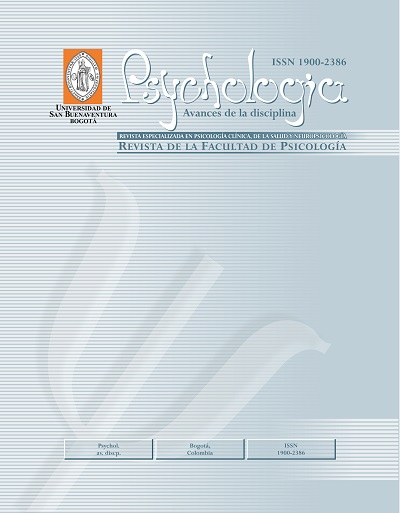This journal provides open, immediate access to its contents, based on the principle that offering the public free access to research helps to promote a higher global exchange of knowledge.
As such, all journal articles are published under a Creative Commons Attribution-NonCommercial-ShareAlike 4.0 International License (CC BY-NC-SA), by which commercial use of the original work or its possible derived works is not allowed, and the distribution thereof must be done with the same license elements regulating the original work.
http://creativecommons.org/licenses/by-nc-sa/4.0/
Abstract
Executive dysfunction is associated with the inability to control aberrant behaviors, such as chronic overeating (Moore, Sabino, Koob, & Cottone, 2017). Obese individuals often report great difficulties controlling eating behaviors, despite a desire to successfully lose weight (Dohle, Diel, & Hofmann, 2018). However, current literature lacks a systematic review about the relationship between executive dysfunction and Obesity. The aim of this study is to present the most important findings about this matter. First, a bibliometric analysis shows the evolution of the topic. Then, the Tree of Science tool is used to show a chronological review that provides a general description of the roots and current perspectives of the state of literature. Finally, clustering analysis of the co-citation network was employed to identify the different perspectives of the topic. The main findings suggest four approaches: (1) effects of body mass index on executive functioning, (2) executive functioning in children with overweight and obesity, (3) physical activity for adult obesity and (4) structural and functional brain changes in obesity. Preliminary data state that in obesity, poor food choices may be associated with frontal cognitive impairments that contribute to reduced orbito-frontal cortex volume.





















